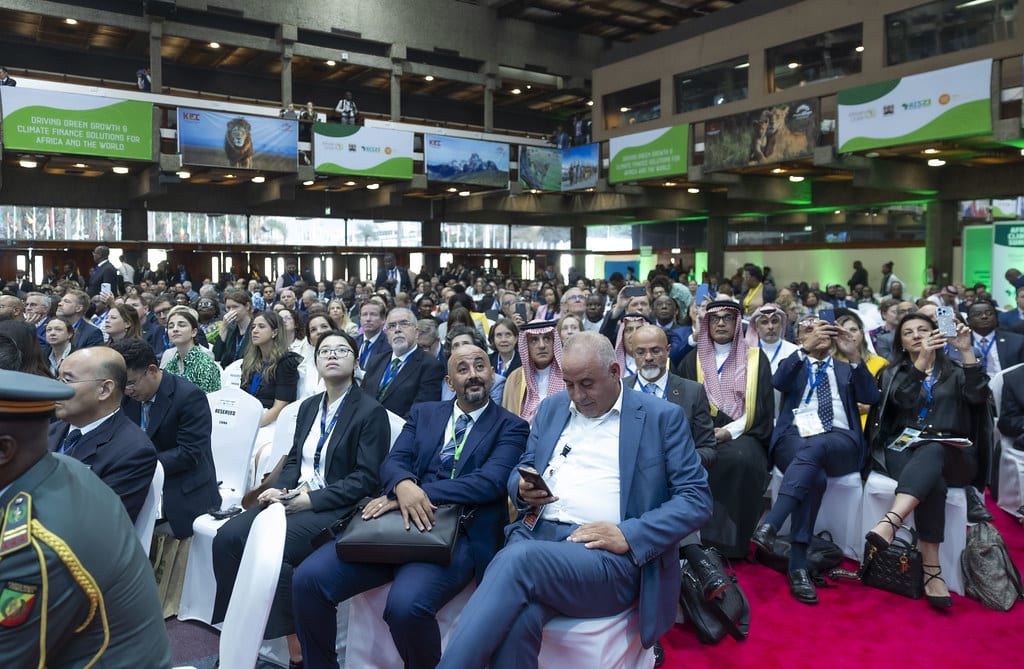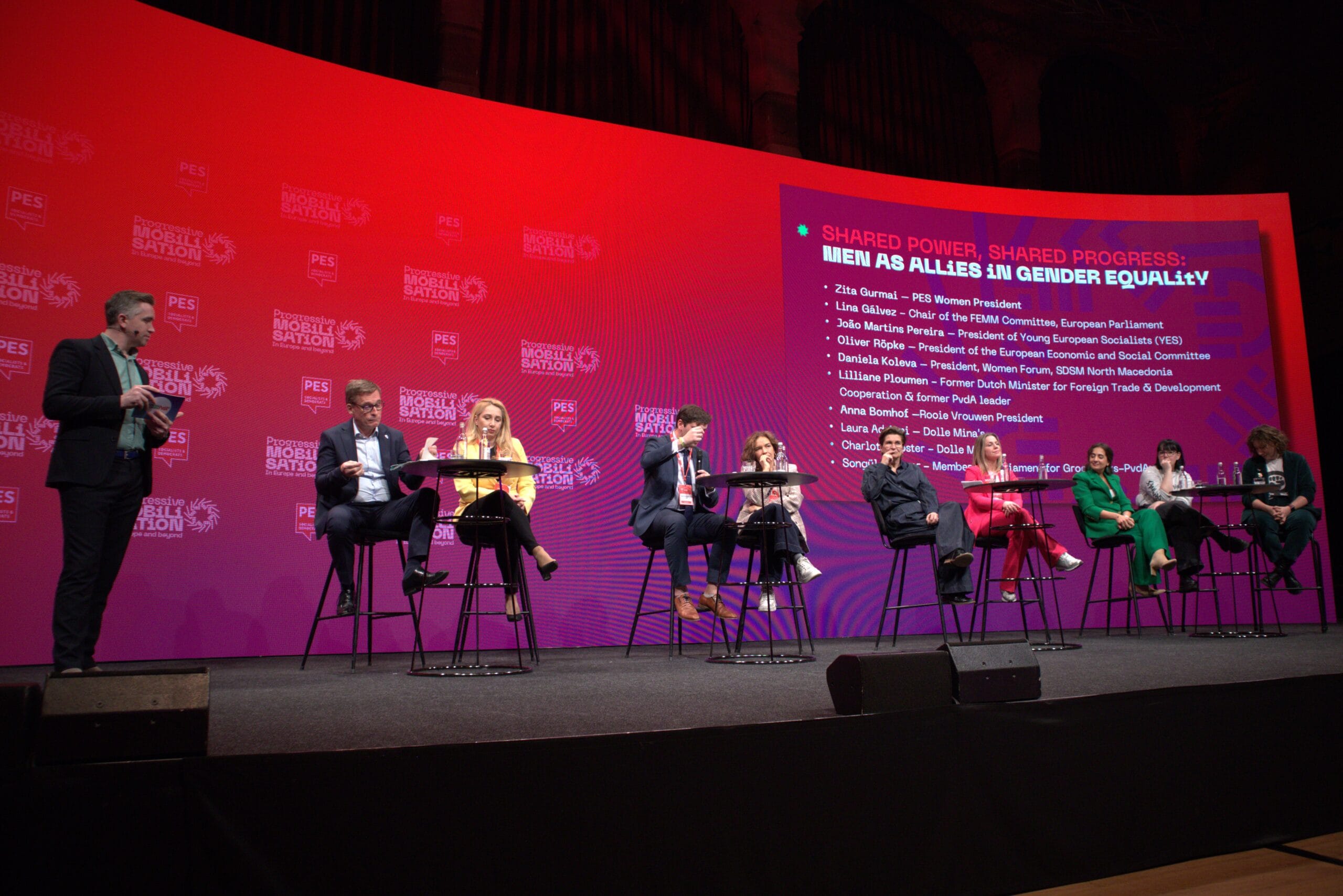Photo: Attendees at the African climate summit in Nairobi - Flickr / Paul Kagame
This month, African Union members met to form a joint position on climate policy ahead of COP28. Carbon credits were a focus point. Governments see a lot of potential in this system, but there are many legitimate criticisms of it.
From four to six September, Kenyan President William Ruto hosted a climate summit in Nairobi, with African Union (AU) member states as invitees. The aim of the meeting was to put heads together for a common position on climate policy. The outcome would then serve as an African starting point in preparation for the climate discussion that will erupt at COP28, the global climate conference in early December in Dubai, the United Arab Emirates (UAE). The European Union (EU) was also present at the summit, represented by European Commission President Ursula von der Leyen. A key topic at the talks was financing climate policy, which had a central role for so-called carbon credits. However, this system does not offer a fair and sustainable solution.
What are carbon credits?
Carbon credits are tradable units that can be bought to offset CO2 emissions. Specifically, it works as follows: A company that emits CO2 can buy a carbon credit. The seller of these units performs an action that absorbs a set amount of CO2 per unit sold, for example by planting trees. The buyer can then cite this to offset CO2 they themselves emitted. Of course, not everyone can just sell a carbon credit by simply planting forest afterwards. However, the system of carbon credit markets is regulated in different ways everywhere, with not only governments but also private organisations able to participate in the sale.
At the Nairobi climate summit, both participating African countries and the EU paid close attention to the role of carbon credits in the fight against climate change. Last year, at the global climate conference in Sharm-el-Sheikh, Egypt, several African organisations adopted the African Carbon Markets Initiative (ACMI) set up. This initiative deals with the sale of carbon credits on the African continent. The money raised is then used on this same continent deployed for combating deforestation and financing (the transition to) green energy. The aim is to raise billions of euros this way. Given a purchase of carbon credits from the UAE worth $450 million, this is not an unrealistic thought.
The EU is also enthusiastic about this system, as can be seen from the speech by Von der Leyen at the climate summit. The committee chair recognises that there is a shortage of public money to fight climate change. Through the sale of carbon credits, she expects to mobilise more money from the private sector for this fight. Von der Leyen suggests that Europe and Africa should work closely together on this issue so that global agreements can be reached on this during the upcoming COP28. This sounds like a simple solution to excessive CO2 emissions, but a simple solution to a complex problem also has some snags in this case.
Way to 'buy off' climate targets
Criticisms of the carbon credit system are twofold: First, there are criticisms regarding nature. To offset a company's CO2 emissions, a forest is planted in another location that actually absorbs this CO2. Until this forest is no longer there. So for this to work, there must be permanent supervision be kept on not only the planting, but also the continued existence of the CO2 absorbing trees.
Second is criticism of a social nature. In Africa, a large number of European companies active in the oil and gas sector. These are usually huge companies, such as Britain's Shell and France's Total, with both a lot of money and high carbon emissions. These companies can use this money to buy carbon credits to offset their high emissions. In this way, the stone-rich European companies can continue mining African resources and simply buy off their climate targets. Having money is thus rewarded and setting up a sustainable business, on the other hand, is not. For this reason called Mohamed Adow, of think tank Power Shift Africa, this system in the Guardian "a new way of colonialism".
This makes it extra painful that Von der Leyen insisted on promoting this system in her speech. Despite the fact that she did so in consultation with African leaders such as Kenyan President Ruto, the system of carbon credits does not open a path to European-African cooperation based on equivalence, something that should be a high priority for the EU.
Opportunities for equal cooperation
So what is a way for the EU to cooperate with Africa on climate issues without so emphatically pursuing only its own interests? For a start, the best solution against high CO2 emissions, for example from Europe's big polluters, is to reduce them. Carbon credits could play a role in the final step towards carbon neutrality, but no more than that. In addition, there are other issues the EU needs to address. As mentioned in an article of think tank ECDPM, when it comes to green energy technology, Europe is far ahead of Africa. In contrast, the continent of Africa has huge potential when it comes to extracting this green energy.
The EU should shift the focus from sparing the European oil-and-gas giants operating in Africa to a partnership within which European renewable energy generation technology is introduced. This should avoid large European companies in the green energy sector setting up in Africa and then taking the profits back home, as has happened mainly with oil-and-gas companies. Of course, it is naïve to think that Europe would not demand a quid pro quo or barter for its technological know-how. Nor is that a problem. Nonetheless, cooperation needs to be fairer to create a sustainable green energy partnership that benefits both people and nature on both continents.
At the African climate summit in Nairobi, the concept of carbon credits was given free rein. Despite the fact that African countries are also enthusiastic about this system, Ursula von der Leyen should have used her presence not to convince the EU to join this plan, but rather to propose fairer initiatives and partnerships. Carbon credits are not a sustainable solution to excessive CO2 emissions and may actually increase inequality between Europe and Africa. The EU should know this and act accordingly.




